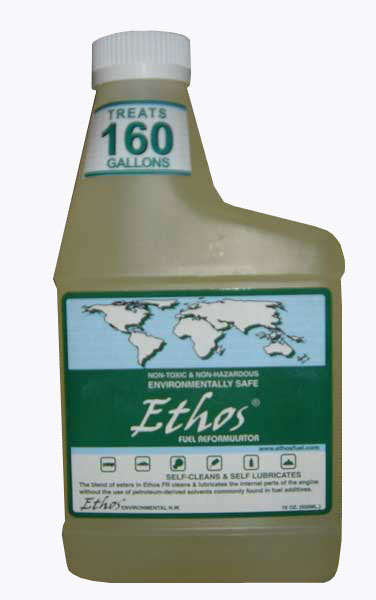The driving alternatives workshop was spilt into three areas: gas efficiency, biodiesel, and Hybrids / electric cars. We had three speakers and five attendees. (The other 45 folks were split between the green cleaning and energy saving classes)
Gas Efficiency
 As gas prices continues to climb, every ounce of gasoline counts. The evening started off with some basic tips on improving the MPG efficiency of ones car:
As gas prices continues to climb, every ounce of gasoline counts. The evening started off with some basic tips on improving the MPG efficiency of ones car:
- Lay off the gas pedal – the lower RPMs, the less gas you use
- When starting from a stand still (ie. a stop light or sign), start up slowly and gradually bring your speed up
- Watch the road ahead of you – when you see a red light, take your foot off the gas pedal and coast to a stop.
- Keep your tires full of air
Then we had some interesting tips:
- Buy your gas in the morning when it’s cold outside – since gasoline turns from a liquid into a gas at high temperatures, the colder it is outside, the more liquid gas you get per dollar
- Pump your gas at a slow rate – the faster the liquid gas moves, the more it turns into vapors, causing you to lose money.
The highlight of the evening (at least for me) was the Ethos FR presentation (can you guess who presented this part?)[@more@]
Ethos FR is a non-toxic, non-hazardous fuel reformulator that helps your engine burn cleaner and more efficient. I tested the product on my car this winter and saw a 15 to 20% increase in MPG – saving me close to $80 (after the cost of the Ethos). It also reduces your engines emissions.
I could go on and on about Ethos FR, but I have two other topics to cover.. sigh. More info can be found here. If you want to know the cost and how to order, please leave a comment as I’m in touch with the company.
Biodiesel
Did you know the first diesel engine ran on peanut oil? Later on, biodiesel was re-discovered as a byproduct of the manufacturing of explosives for WWII.
Interesting – but what is biodiesel? It is a fatty-acid ester that is formed from either vegetable or animal oil. One processed, biodiesel can be burned in any diesel engine – without any special configurations!
In addition to acting as a lubricant and extending the life of upper engine parts, biodiesel produces no sulfur or net carbon dioxide as well as emitting 20 times less carbon monoxide then regular diesel.
Other benefits / uses:
- Biodiesel is non-toxic (about as toxic as table salt)

- Biodiesel is biodegradable (degrades as fast as suger)
- The by-products of biodiesel can be used for animal feed, soap, or weed control.
- It is a strong solvent that can clean up grease spills or stains
- It can also be used to treat wood instead of creosote
Hybrids / electric cars
I don’t have as much information on this part of the workshop as I forgot to take notes… (I had a handout for the biodiesel part!)
However, basically, concerns over the environment, and the launch of new hybrid and electric vehicle models has seen interest in these types of vehicles soar.
Additionally, according to websites like rmhbangor.org, these types of vehicles are really benefitting many businesses across the globe, as they are better for the environment and boost the business’s reputation.
That being said, it is interesting to note that car manufacturers still have a duty to ensure electrical safety for their employees and other visitors to their premises.
Consequently, any employees working with electrical equipment or vehicles should have adequate training so they can work safely and so that the risks of injury and fire or explosion are reduced.
Understandably though this can be challenging in motor trade premises where there is a range of portable and fixed equipment.
Ultimately, it is undeniable that the popularity and complexity of electric and hybrid vehicles have introduced more safety considerations and hazards, especially with regards to the software that is used throughout these particular cars.
Moreover, from a technological perspective, all software included in these vehicles needs to be designed and tested with Motor Industry Software Reliability Association (MISRA) compliance in mind. You can learn more about the importance of MISRA compliance on the Parasoft website.
In a nutshell, electricity is the way of the future. It takes less energy to power an electric car plus the electric can be generated via solar or wind energy. It will also be intriguing to see what else the future holds for hybrid and electric vehicles as well as the underlying software used to build and operate these fascinating cars.
hmm… That’s all I have time for as it’s almost 5:30 and I have an LTTG meeting…. =/
